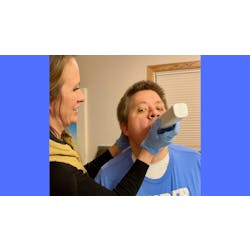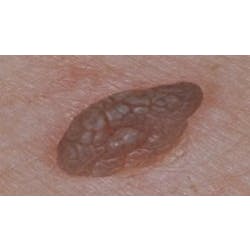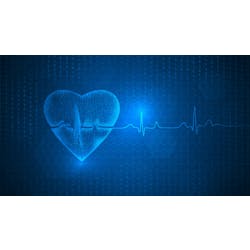By Jannette Whisenhunt, RDH, BS, MEd, PhD
I attended a wonderful CE course last month about the oral-systemic link. It was the most different type of course I had ever taken. The first hour was a documentary titled, “Say Ahh: The Cavity in Healthcare Reform.” This documentary was very eye-opening, to say the least. It covered a very common problem that the dental field has always known about - but the medical community is catching up with—and that is that the mouth is connected to the body.
I think we are finally seeing more medical consultations with dental offices. If you ever have a chance to see this documentary, it is very well worth your time. There is a marketing tool within the film to get an office to become a “Complete Health dental office,” but the message is clear that we need to start paying more attention to the whole health of our patients.
The documentary explains how the periodontal disease process is an inflammatory process that affects the whole body. The bacteria in the mouth can be introduced throughout the whole body. This bacterial load and inflammation puts a stress on the overall system and can set other inflammatory processes in motion or what they call an inflammatory cascade. Our body is set up to fight off a cut or injury with a flood of chemical reactions and blood cells to repair that injury. When there is an overload on the system, our body becomes overworked with this inflammatory process and it cannot react as fast as we need it to, and it starts backing up in our bodies.
Diabetes and heart disease at their basic core are inflammatory processes that affect those organs and vessels in them. Other health issues such as preterm birth, joint replacement infections, and oral cancer lesions all have a common denominator, which is inflammation. The documentary explains how many health issues can be exacerbated when the periodontal disease bacteria is present in the body.
We need to ask plenty of questions about our patient’s medical history, and do a thorough oral screening at every appointment. That tooth that needs a root canal may be causing problems with the patient’s blood sugar control or may cause more damage to their heart vessels that are already compromised. That infection, even if it is just a little bit from one tooth, may be the overload that the body cannot handle, and it puts more stress on the organs of the body that are already working at their limit to keep the infection at bay.
The seminar mentioned above was hosted by the Partners in Complete Health website. They believe the advocacy that good periodontal health prevents heart attacks and strokes led to the Journal of Periodontology and American Journal of Cardiology issuing a statement recommending that:
Doctors and dentists warn patients with moderate to severe gum disease of their potential cardiovascular risks.
Patients with gum disease should get a complete physical exam and blood pressure measurements annually.
Patients should be evaluated for diabetes, high blood pressure, and a family history of early deaths from cardiovascular disease.
Patients will need to be evaluated by their dentist or dental hygienist frequently for periodontal cleanings to lower the number or bacterial load.
Saliva testing can be a very helpful tool and used to let a patient know if they are carrying the type of oral bacteria that can cause more severe periodontal disease. That bacteria, when added with a high cholesterol level, can cause more damage and clogging of the blood vessels and causes an inflammatory burden. This can cause further damage, so, having periodontal disease can make the vessels worse.
If your office is interested in learning more about how the saliva testing can be done, Oral DNA (OralDNA.org) has been around for several years. Their lab report provides a great readout that is easy for the patient to read and understand. It will also let the patient know the level of bacteria they have, and if the bacteria is a destructive type or not.
Our health-care system is so overburdened, and costs continue to skyrocket. It is good to see that the medical community is realizing that working to control the bacteria in the mouth is something that can help improve the entire health of the patient. It is a different way to look at how disease can progress. Periodontal disease can be relatively easy and inexpensive to treat, when you compare it to heart surgery or a lifetime of diabetic supplies.
We need to welcome any new program or system that helps our dental teams connect with the medical world. We need to encourage and support hygienists to get involved in asking more in-depth medical history questions to go deeper and find any connections to the systemic diseases that the patient may have. I was pleased to see this “Complete Health Model” at my CE course and hope that this mindset will start spreading to make our field of dentistry become more involved with medicine.
I think the day of dentistry doing lab tests for saliva, prescribing antibiotics for periodontal disease, and consulting with cardiologists and endocrinologists will become commonplace in our offices. I encourage you to learn all you can about the various inflammatory-based diseases there are and try to connect how the oral health of your patients affects their whole body’s health.
Author’s note: Dr. Heather Lucas is the National Director Partners in Complete Health. Dr. Lucas can be contacted at [email protected]. The website is partnersincompletehealth.org. RDH
Jannette Whisenhunt, RDH, BS, MEd, PhD, is the Department Chair of Dental Education at Forsyth Technical Community College in Winston-Salem, N.C. Dr. Whisenhunt has taught since 1987 in the dental hygiene and dental assisting curricula. She has a love for students and served as the state student advisor for nine years and has won the student Advisor of the Year award from ADHA in the past. Her teaching interests are in oral cancer, ethics, infection control, emergencies and orofacial anatomy. Dr. Whisenhunt also has a small continuing education business where she provides CE courses for dental practices and local associations. She can be reached at [email protected].






